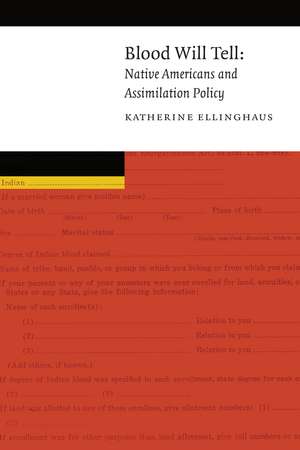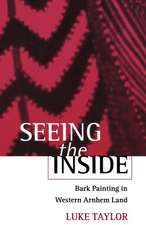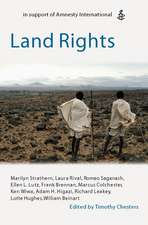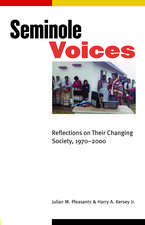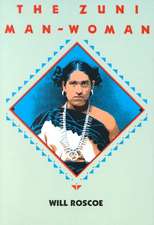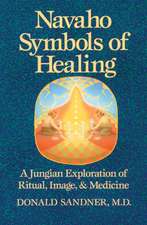Blood Will Tell: Native Americans and Assimilation Policy: New Visions in Native American and Indigenous Studies
Autor Katherine Ellinghausen Limba Engleză Paperback – 30 apr 2022
Blood Will Tell reveals the underlying centrality of blood in shaping official ideas about who was eligible to be defined as Indian by the General Allotment Act in the United States. Katherine Ellinghaus traces the idea of blood quantum and how the concept came to dominate Native identity and national status between 1887 and 1934 and how related exclusionary policies functioned to dispossess Native people of their land. The U.S. government’s unspoken assumption at the time was that Natives of mixed descent were undeserving of tribal status and benefits, notwithstanding that these people played crucial roles in the national implementation of allotment policy.
Ellinghaus explores on-the-ground case studies of Anishinaabeg, Arapahos, Cherokees, Eastern Cherokees, Cheyennes, Chickasaws, Choctaws, Creeks, Lakotas, Lumbees, Ojibwes, Seminoles, and Virginia tribes. Documented in these cases, the history of blood quantum as a policy reveals assimilation’s implications and legacy. The role of blood quantum is integral to understanding how Native Americans came to be one of the most disadvantaged groups in the United States, and it remains a significant part of present-day debates about Indian identity and tribal membership. Blood Will Tell is an important and timely contribution to current political and scholarly debates.
Ellinghaus explores on-the-ground case studies of Anishinaabeg, Arapahos, Cherokees, Eastern Cherokees, Cheyennes, Chickasaws, Choctaws, Creeks, Lakotas, Lumbees, Ojibwes, Seminoles, and Virginia tribes. Documented in these cases, the history of blood quantum as a policy reveals assimilation’s implications and legacy. The role of blood quantum is integral to understanding how Native Americans came to be one of the most disadvantaged groups in the United States, and it remains a significant part of present-day debates about Indian identity and tribal membership. Blood Will Tell is an important and timely contribution to current political and scholarly debates.
| Toate formatele și edițiile | Preț | Express |
|---|---|---|
| Paperback (1) | 181.05 lei 22-36 zile | |
| Nebraska – 30 apr 2022 | 181.05 lei 22-36 zile | |
| Hardback (1) | 292.05 lei 43-57 zile | |
| Nebraska – 31 iul 2017 | 292.05 lei 43-57 zile |
Preț: 181.05 lei
Nou
Puncte Express: 272
Preț estimativ în valută:
34.64€ • 36.27$ • 28.67£
34.64€ • 36.27$ • 28.67£
Carte disponibilă
Livrare economică 17-31 martie
Preluare comenzi: 021 569.72.76
Specificații
ISBN-13: 9781496230379
ISBN-10: 149623037X
Pagini: 234
Ilustrații: 3 illustrations, index
Dimensiuni: 152 x 229 x 16 mm
Greutate: 0.35 kg
Editura: Nebraska
Colecția University of Nebraska Press
Seria New Visions in Native American and Indigenous Studies
Locul publicării:United States
ISBN-10: 149623037X
Pagini: 234
Ilustrații: 3 illustrations, index
Dimensiuni: 152 x 229 x 16 mm
Greutate: 0.35 kg
Editura: Nebraska
Colecția University of Nebraska Press
Seria New Visions in Native American and Indigenous Studies
Locul publicării:United States
Notă biografică
Katherine Ellinghaus is an associate professor of history at La Trobe University in Melbourne. She is the author of Taking Assimilation to Heart: Marriages of White Women and Indigenous Men in Australia and the United States, 1887–1937 (Nebraska, 2006) and coeditor of Historicising Whiteness: Transnational Perspectives on the Construction of an Identity.
Cuprins
List of Illustrations
Introduction: The Discourse of Blood in the Assimilation Period
1. Fraud: The Allotment of the Anishinaabeg
2. Chaos: The Dawes Commission and the Five Tribes
3. Practically White: The Federal Policy of Competency
4. The Same Old Deal: The 1934 Indian Reorganization Act
5. Colored: The Indian Nations of Virginia and the 1924 Racial Integrity Act
Conclusion: Writing Blood into the Assimilation Period
Acknowledgments
Notes
Bibliography
Index
Introduction: The Discourse of Blood in the Assimilation Period
1. Fraud: The Allotment of the Anishinaabeg
2. Chaos: The Dawes Commission and the Five Tribes
3. Practically White: The Federal Policy of Competency
4. The Same Old Deal: The 1934 Indian Reorganization Act
5. Colored: The Indian Nations of Virginia and the 1924 Racial Integrity Act
Conclusion: Writing Blood into the Assimilation Period
Acknowledgments
Notes
Bibliography
Index
Recenzii
"Ellinghaus has taken a nuanced approach to an incredibly complex and wide-ranging topic with successful results. The book is thoroughly researched, well argued, and will be especially useful to scholars of nineteenth-century American Indian history and federal Indian policy."—Natalie Panther, Chronicles of Oklahoma
"Blood Will Tell engages with and makes important contributions to the historical scholarship and contemporary political debates on race and citizenship in the academy, as well as in American Indian families, communities, and nations."—Jill Doerfler, American Historical Review
"This book makes a significant contribution to how we interpret assumptions about ethnicity, skin color, and cultural behavior—from low-level civil servants to official ideology to indigenous notions of identity. It is a welcome addition to furthering our understanding of blood quantum and Native American policy."—Ryan W. Schmidt, Great Plains Quarterly
"Blood Will Tell makes a brilliant and original contribution to historical scholarship on Indians, race, and settler colonialism in western American history and merits a wide readership."—Baligh Ben Taleb, Pacific Historical Review
"Blood Will Tell is a valuable contribution to studies of the allotment era in particular and to studies of U.S.–American Indian relations and settler colonialism in general."—John R. Gram, Southwestern Historical Quarterly
"Ellinghaus's work shines a light on a crucial component of federal Indian policy."—Christopher Steinke, Nebraska History
“Ellinghaus utilizes an impressive amount of archival research and specific case studies to show how the concept of blood permeated the policies of the Office of Indian Affairs during [the late nineteenth and early twentieth century].”—Paul Spruhan, Canadian Journal of Native Studies
"Ellinghaus offers this book as a means for critiquing and analyzing the phenomenon of settler colonialism which allowed for tropes of authenticity to persist to today. It also adds to the story of Native Americans' unrelenting resistance with racial science and white structures. In light of the semi-recent events at Standing Rock, Native American persistence throughout history is again highlighted by their ability to resist and act against their oppressors."—Hannah Blubaugh, Origins
“Katherine Ellinghaus brilliantly traces the uneven practices that produced a powerful discourse of American Indian blood quantum. With sure hand and subtle interpretation, Blood Will Tell offers a compelling new reading of a technology of identity at once complicated and crude.”—Philip J. Deloria, Carroll Smith-Rosenberg Collegiate Professor at the University of Michigan, Ann Arbor, and author of Indians in Unexpected Places
“Written with great clarity and precision. . . . Ellinghaus develops several key insights that will make contributions to historical scholarship on Indians, race, and western American history.”—Margaret Jacobs, Chancellor’s Professor of History at the University of Nebraska–Lincoln and author of A Generation Removed: The Fostering and Adoption of Indigenous Children in the Postwar World
Descriere
A study of the role blood quantum played in the assimilation period between 1887 and 1934 in the United States.
